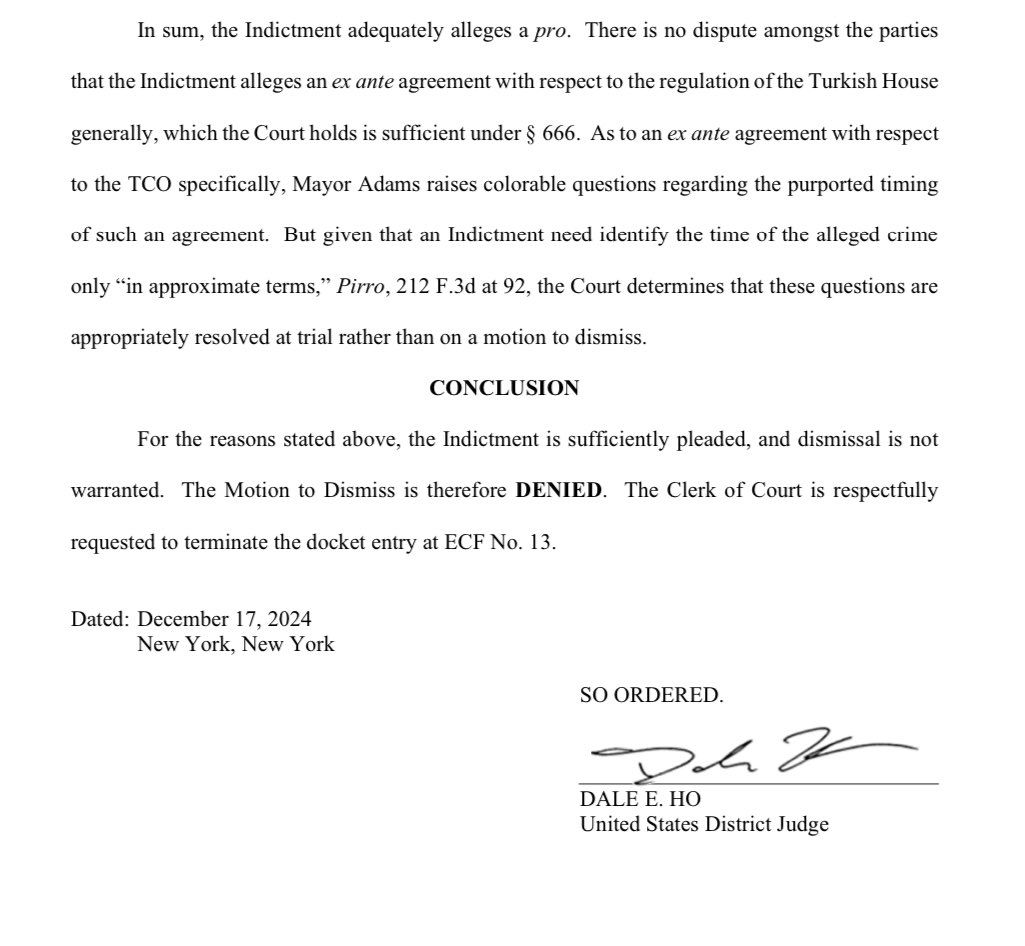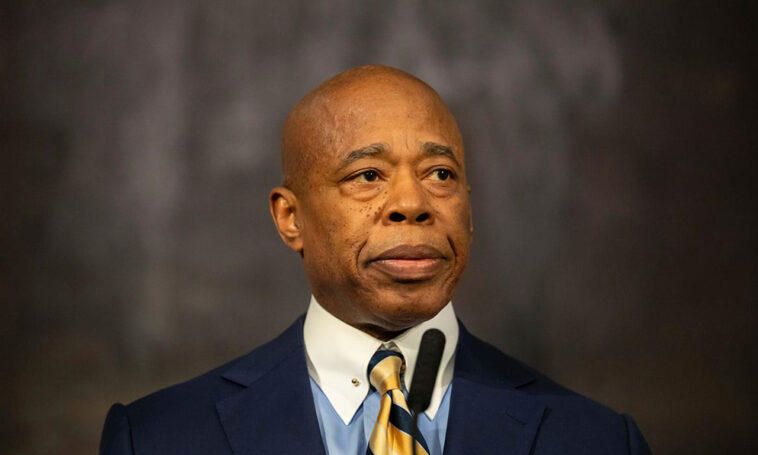A federal judge ruled on Tuesday that the bribery charge against New York Mayor Eric Adams will not be dismissed, rejecting a defense request to throw out the indictment. The charge, which was filed in September, alleges that Adams accepted bribes in the form of overseas travel benefits and illegal campaign contributions from Turkish government officials and businesspeople in exchange for using his influence to benefit them. Judge Dale E. Ho, who issued the ruling, stated that the indictment sufficiently describes the alleged crimes and provides enough detail to proceed to trial in April.
Adams, a Democrat who became mayor in January 2022, has pleaded not guilty to the corruption charges, which stem from his activities between 2015 and 2022, during which time he developed relationships with Turkish officials and businesspeople. The indictment outlines how Adams, while serving as Brooklyn Borough President and later as mayor, allegedly exploited these relationships to secure benefits, including travel perks, in exchange for providing political favors.
One of the key allegations in the case revolves around luxury travel benefits that Adams received from a Turkish official and others, including discounted flights and hotel stays, between the summer of 2021 and the summer of 2022. In return, the indictment claims, Adams used his political influence to further the interests of the Turkish government and businesspeople, including assisting with a real estate project known as the Turkish House. This skyscraper, which houses multiple Turkish diplomatic missions, reportedly received favorable treatment from city officials, including a temporary certificate of occupancy that Adams is accused of pressuring city fire officials to issue.
Adams’ defense lawyers argued that the indictment lacked sufficient clarity to warrant a bribery charge, claiming that the language used was too vague to constitute a crime. They further contended that Adams did not have formal governmental authority over city fire officials during the time he is alleged to have exerted pressure on them. However, Judge Ho disagreed with these arguments, citing previous cases where public officials were held accountable for actions taken outside of their direct authority.
The judge emphasized that federal bribery laws aim to curb corrupt influence, even when a public official does not hold direct power over those they are alleged to have influenced.
In his opinion, Ho stated that the indictment clearly outlines how Adams’ actions could be seen as an abuse of his position for personal gain, and that the charge would remain intact. The judge’s ruling sets the stage for the case to proceed to trial, which is currently scheduled for April 2024. At the heart of the legal battle is whether Adams used his political influence to facilitate illicit transactions and whether those actions qualify as bribery under federal law.
The ruling comes at a time when Adams is facing intense scrutiny over his ties to Turkish officials, and it has political implications, especially as it involves a prominent figure in New York City politics. Interestingly, the ruling was issued just a day after former President Donald Trump publicly expressed his support for Adams. During a news conference at his Mar-a-Lago estate in Florida, Trump suggested he would consider pardoning Adams, although he also admitted that he was not fully informed on the details of the case. Trump’s comments added an unexpected twist to the ongoing legal drama, though they are unlikely to have any immediate bearing on the case.
As the legal proceedings unfold, Adams’ attorneys have yet to comment on the judge’s decision. The outcome of the trial, which could have far-reaching consequences for the mayor’s career, will depend on whether prosecutors can prove that Adams’ actions constituted bribery under the law. The case also raises broader questions about the ethics of political influence and the potential for corruption in high-ranking public officials. If convicted, Adams could face serious legal and political repercussions, including a possible prison sentence.

For now, the focus remains on the trial in April, which will likely be closely watched not just by the residents of New York City, but by political observers across the nation. The case will also likely spark broader discussions about the intersection of politics, influence, and legal accountability, especially as public officials navigate the fine line between advocacy and corruption.




Join the Community and Be a Part of the Conversation
You must be logged in or registered to post a comment.